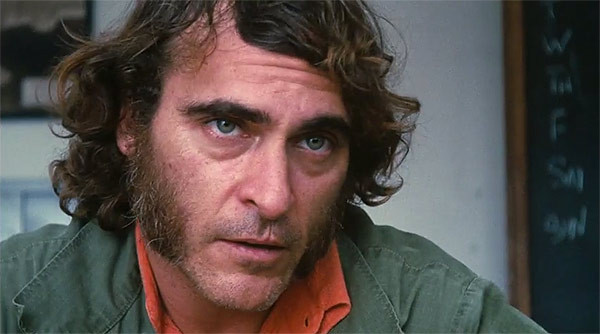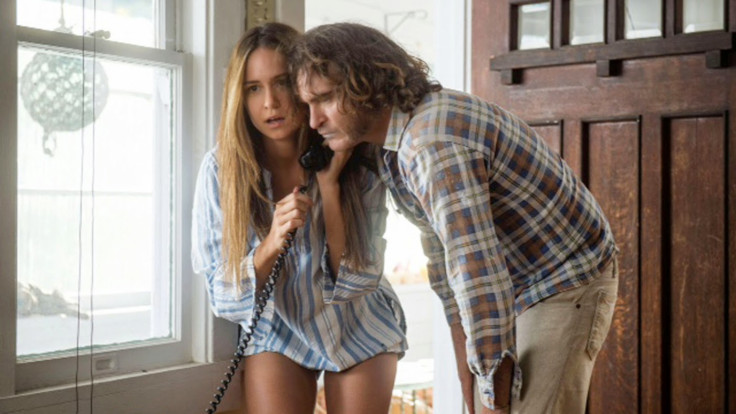Inherent Vice review: An intoxicating trip into paranoid 1970s America

Having recently taken us to the ruthless prospecting era of There Will Be Blood and the post-war search for spirituality in The Master, the latest historical opus from American director Paul Thomas Anderson, Inherent Vice, has us journey with PI stoner detective, Larry 'Doc' Sportello (Joaquin Phoenix), as he navigates several mysteries in 1970s Los Angeles.
Inherent Vice
Director: Paul Thomas Anderson
Stars: Joaquin Phoenix, Josh Brolin & Owen Wilson
Rating: 15
But you'd be wrong to think this is Anderson returning to his early comedic roots à la Boogie Nights and Punch Drunk Love. Adapted from the novel of the same name by Thomas Pynchon, this is a dark, intoxicating trip into paranoid 1970s America; where the Manson murders, the Vietnam War and the presidency of Richard Nixon are already strangling to death the hippy ideals of peace and free love.
The plot sees Doc investigate a variety of different cases; the disappearance of his ex-girlfriend Shasta Fay Hepworth (Katherine Waterston), a ploy to institutionalise real estate mogul Mickey Wolfmann (Eric Roberts), the whereabouts of supposedly deceased saxophonist Coy Harlingen (Owen Wilson), the death of white supremacist Glen Charlock and the true identity of mystery boat/association of dentists/international drug-smuggling ring The Golden Fang.
If this all sounds rather confusing, then wait until you actually watch it. In the mould of classic hard-boiled detective stories like The Big Sleep, the story here doesn't make a whole lot of sense. Even after multiple viewings, you'll be struggling to grasp in places what is transpiring and why; a fear that whatever Doc is smoking is filtering out from the screen and messing with your brain.
For this is a film shrouded in a foggy haze of paranoia. Anderson for the most parts avoids the saturated colours and pop-culture studded soundtrack you usually associate with nostalgic period pieces (think last year's American Hustle). Cinematographer Robert Elswit crafts most of Doc's scenes in dark and dingy nocturnal locations, where Jonny Greenwood's instrumental score whirrs away in the background, subtly underlining even the more comedic exchanges with a hint of menace.
Doc's grubby world is shown in stark contrast to the two operations he is rallying against, the corrupt Los Angeles police force and mysterious crime syndicate The Golden Fang. Both these institutions are encased in towers of glass, steel and concrete, where like a weary vampire, Doc must pay a visit in the oppressive bright day.

"Inherent Vice is something you can't avoid," says Doc's old lover Shasta, describing a thing that contains a hidden defect. While it's clear that the film is looking at how the hopeful 1960s counter-culture would inevitably disintegrate, what Anderson manages to capture so well is the state of flux during that period.
Here we have symbols turned upside down, and various figures shifting sides. Doc is on the surface a deadbeat hippy, but resolutely takes to the task at hand; constantly chiding the police officer he sometimes works with - although more often than not takes a beating from - Bigfoot Bjornson (Josh Brolin), for not being a professional.
Bigfoot on the other hand, with his close-cropped hair and chiselled jaw, looks every bit the Neanderthal cop, but is in fact a downtrodden, closet homosexual who longs for a more liberal lifestyle. Even one of the central plots shifts centres around the dead/not dead status of saxophonist Coy Harlingen, who pretends to be a counter-cultural figure as a way of spying on supposed 'subversive elements' for the government.
This is a dark, intoxicating trip into paranoid 1970s America; where the Manson murders, the Vietnam War and the presidency of Richard Nixon are already strangling to death the hippy ideals of peace and free love.
Although it's certainly a unique effort to capture this period of transition in American history, the film suffers from the book's weakness in that there is just too much going on for the story to ever feel focused. In parts it feels like Anderson is on cruise control, the usual visual audacity of his customary long takes here mainly serving out whole pieces of Pynchon's prose.
Meanwhile, the changes that have been made from the book, cutting out several scenes and placing Doc's friend Sortilege (Joanna Newsom) as a sort of ethereal narrator, only add to make the rushed and haphazard plot more confusing. While it's not essential to have an easily digestible story, I couldn't shake the fear when watching Inherent Vice that this painfully intricate plot to some degree masks the film's lack of profundity and emotional resonance.
In amongst the mess, Anderson does manage to successfully find one relationship to anchor the film to, the odd couple of Doc and Bigfoot. Phoenix re-teams with Anderson for the second film in a row, and while his mutton-chops Neil Young look-alike Doc Sportello isn't as striking a figure as Freddie Quell, he lends the character a great warmth and humour.
Brolin might be new to Anderson's style, but just like Philip Seymour Hoffman in The Master, makes sure as Bigfoot he commands every scene he's in. Together they embody the Yin-Yang of the system versus the counter-culture, two contradictory forces that form a symbiotic relationship in American society where one can't exist without the other.

© Copyright IBTimes 2025. All rights reserved.






















